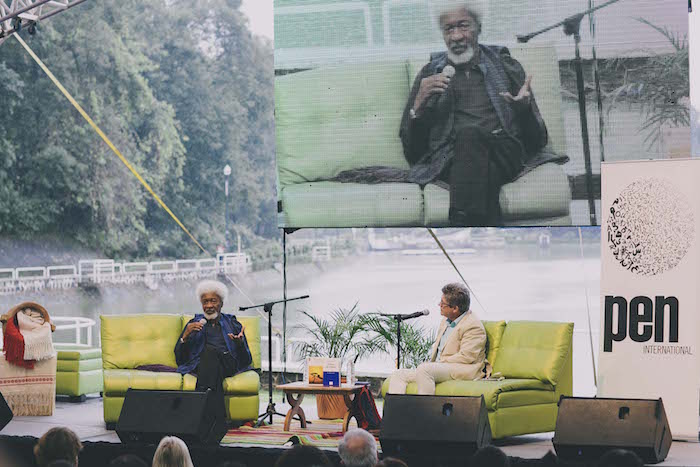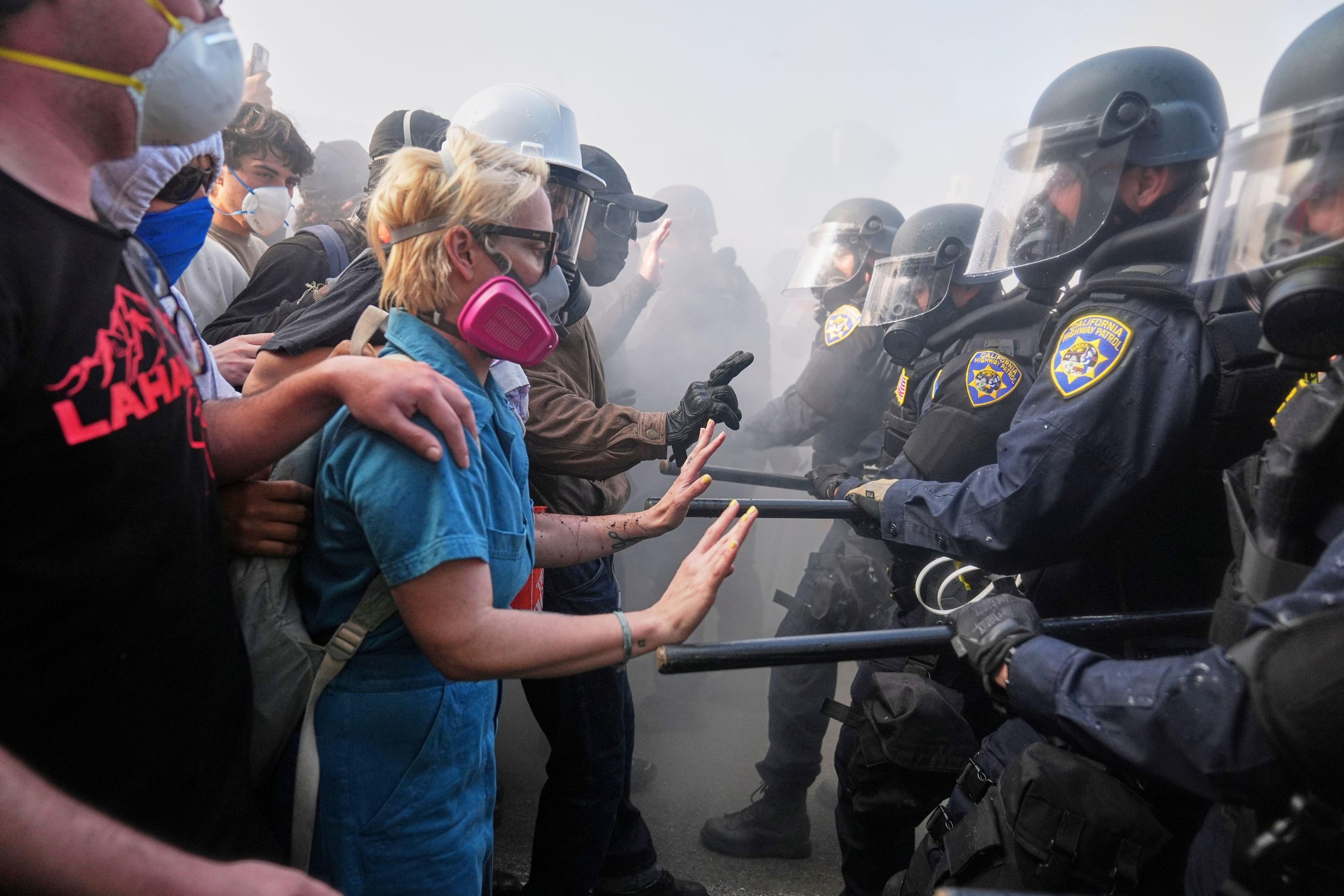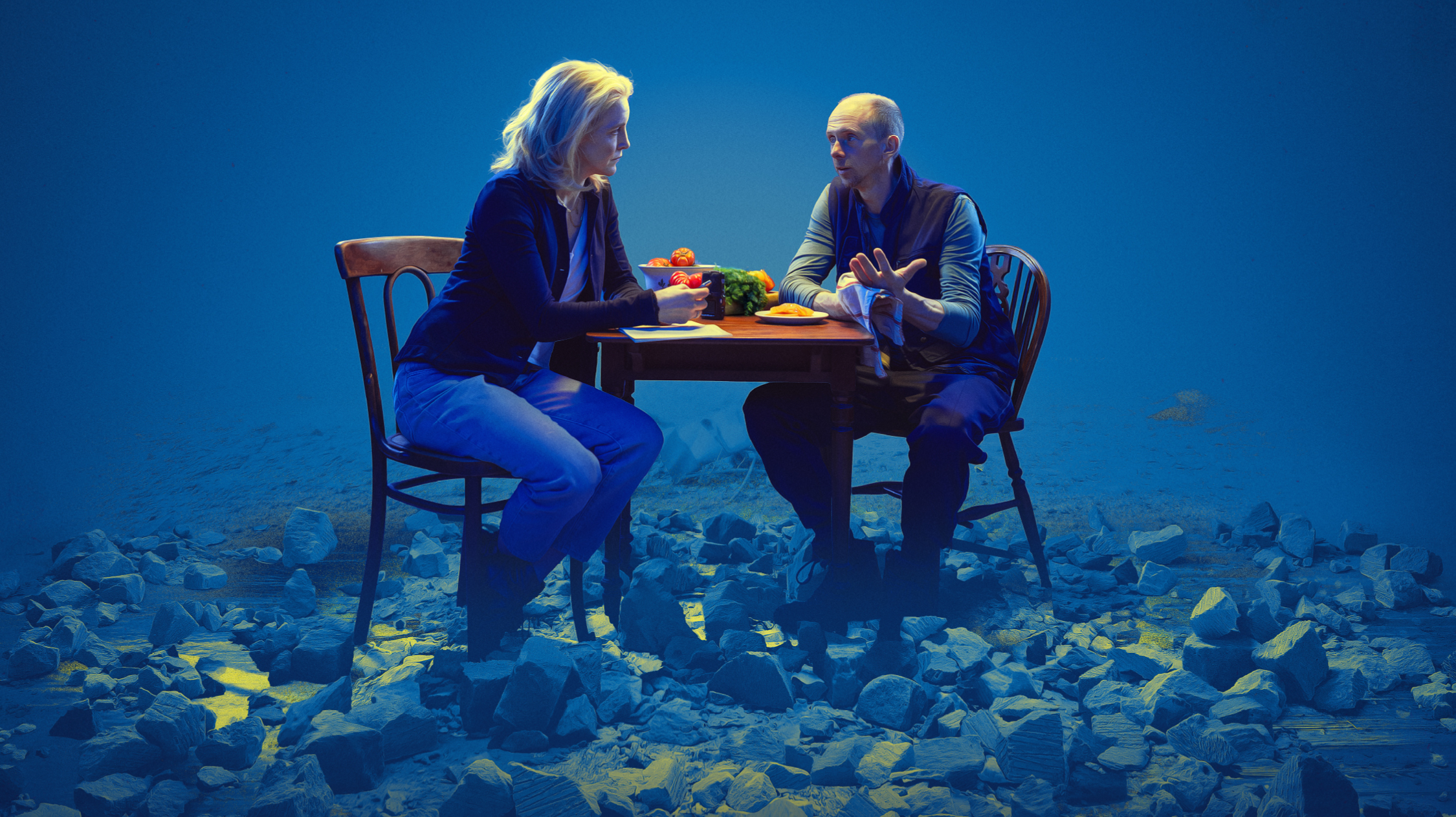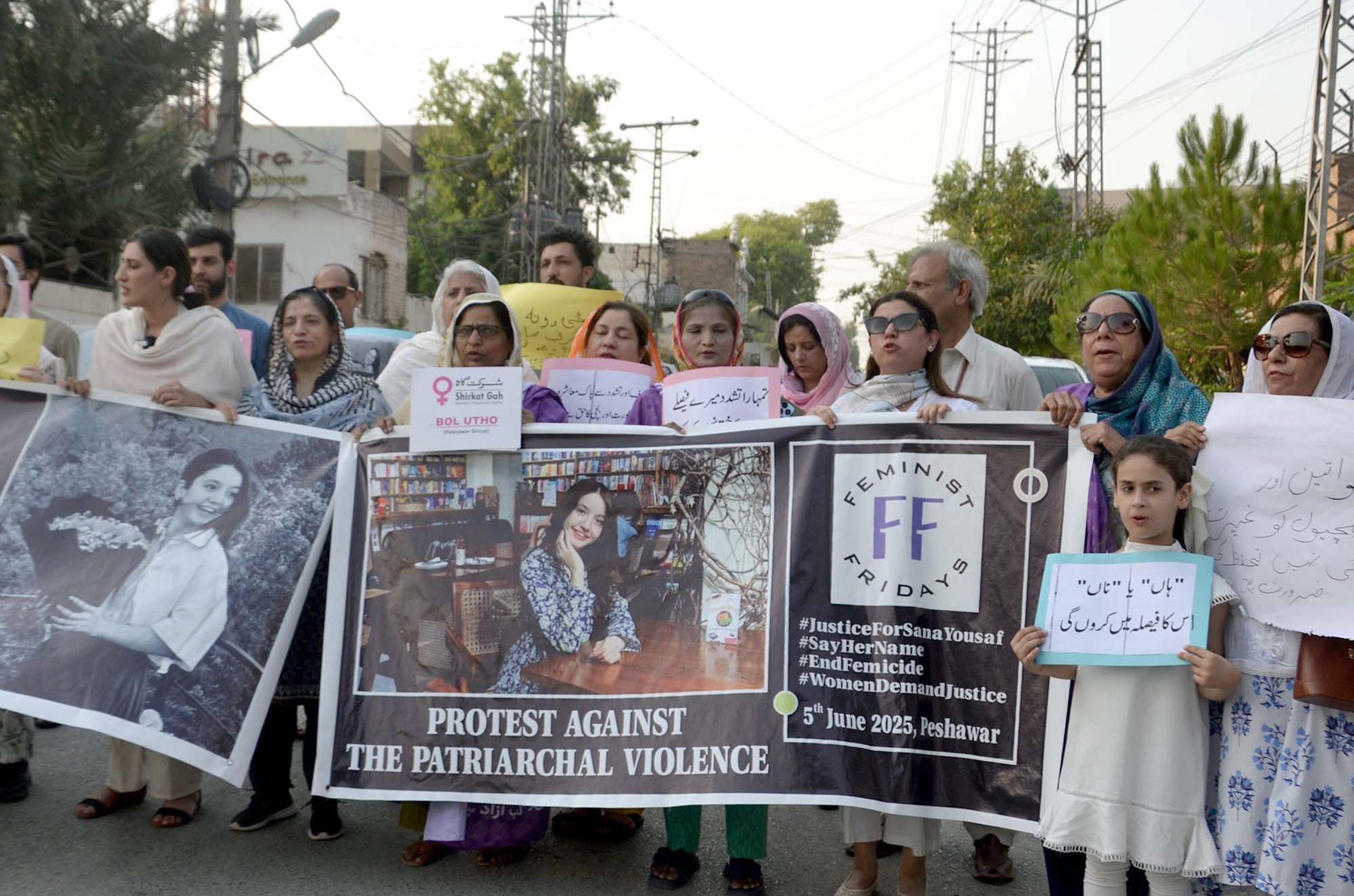[vc_row][vc_column][vc_custom_heading text=”Dealing with mutilated bodies, an attempted acid attack and speakers arresting each other. All part of his job organising Hay literature festivals around the world, explains Peter Florence in the winter 2016 issue of Index on Censorship magazine” google_fonts=”font_family:Libre%20Baskerville%3Aregular%2Citalic%2C700|font_style:400%20italic%3A400%3Aitalic”][/vc_column][/vc_row][vc_row][vc_column][vc_single_image image=”85033″ img_size=”full” add_caption=”yes”][vc_column_text]
Running a literature festival in a context where freedom of speech is not a given is like playing chess on a plain grey board. Sometimes you are just not able to imagine where to move, and sometimes you just keep playing on grey. But as US President Barack Obama said so eloquently after November’s election: “You say, OK, where are the places where I can push to keep it moving forward?”
Bringing people together around a table or a picnic rug or a campfire is a specific challenge. There is no mediated distance of print or broadcast. The whole point is that you’re face to face, that you’re making it personal. And the offence and the risk are as personal as the joy and the discovery. This makes it a fascinating challenge when the practicalities of running a big public event run into conflict with the authorities who license you to put up your stages.
Sometimes it comes like this: a week after a successful festival, a man you’ve been working with for a couple of years suggests a meeting in a café to review the year’s work. He’s a good man, an enabler; a man who has the careworn look of a bureaucrat who’s survived in an undemocratic regime by knowing which battles to fight.
You like him, because he’s helped navigate the public licences and public funding avenues. He orders cake. He enthuses about the opportunity to meet Hanif Kureishi at the screening of My Beautiful Launderette, and the honour of hearing Carl Bernstein speak about the First Amendment. His funder is thrilled. They love the Hay Festival in the city. We’re in a coffee shop, not his office. They are so thrilled they’d like to double the grant they give us. Alarm bells. Could we help them? Here it comes: could we programme the next festival just the same way, but without the homosexuals or the Jews?
Sometimes it’s harder. Our first festival in volatile, thrilling Mexico comes to a world heritage site in Zacatecas, because the state’s visionary governor has visited our festival in Cartagena, Colombia, and she wants to bring a similar experience to her home. The festival is a huge success. Her term ends and she is succeeded by a new governor who cancels all his predecessor’s funded projects.
But across the country a dynamic new governor in Veracruz, Javier Duarte, picks up the baton and invites us to Xalapa. A fortnight before we start, a drug cartel dumps 35 mutilated bodies onto a busy road nearby. “It’s a gang thing, an inter-narco incident,” we’re told.
We hold the festival. Tens of thousands of students come and listen and talk and wonder.
[/vc_column_text][/vc_column][/vc_row][vc_row][vc_column width=”1/4″][vc_icon icon_fontawesome=”fa fa-quote-left” color=”custom” align=”right” custom_color=”#dd3333″][/vc_column][vc_column width=”3/4″][vc_custom_heading text=”Could we programme the next festival just the same way, but without the homosexuals or the Jews?” google_fonts=”font_family:Libre%20Baskerville%3Aregular%2Citalic%2C700|font_style:400%20italic%3A400%3Aitalic”][/vc_column][/vc_row][vc_row][vc_column][vc_column_text]
During the third year the talk about the Governor Duarte’s probity starts. Journalists investigating the cartels are disappeared. We bring in Salman Rushdie, Jody Williams and Carl Bernstein again to speak up alongside Mexican writers. The students embrace the festival as a beacon of freedom of speech.
Year four, we receive a petition demanding that we cancel the festival and denounce the governor for failing to stem the constant steam of killings of journalists in Veracruz. The petition is signed by more than 300 journalists and some writers from across Latin America who have attended the festival. We listen. A rival, and much bigger petition is started by the students and teachers in Xalapa begging us not to leave, saying the festival is their bulwark against silence. But we cannot operate against the wishes of writers and journalists. We broadcast the festival digitally on BBC Mundo, and move to Mexico City and then to Querétaro. Many of the students from Xalapa come too. Duarte is currently on the run from the police and the cartels.
Sometimes it’s just farcical. In 2008, at our festival in Wales we invite George W Bush’s confidant and former US Ambassador to the UN John Bolton to discuss Abu Ghraib and the “war on terror”. Many supporters of Hay are appalled. Our good friend and neighbour George Monbiot, also a speaker, is so appalled he decides that he will attempt a citizen’s arrest at the festival. I assume he’s joking. Monbiot announces this is what he’s going to do in The Guardian. The Dyfed-Powys Police inform me of the legal procedure for citizen’s arrest and step away.
My mother reads me Voltaire. I brief our security team. The day comes. Bolton turns up. His interviewer is called to the BBC at lunchtime, so I have to go onstage with him. I ask him under what circumstances it would be OK for me, if I didn’t believe his answers, to tip him backwards, bag him, and pour water over his face. He doesn’t answer. He cannot say “under no circumstances”, though I’m not sure he understands that’s the issue. It’s on YouTube; it’s compelling.
Bolton knows that Monbiot is going to try to make a citizen’s arrest, and George knows I cannot allow him to do that and still hold Hay as a platform for free speech. So that’s what happens. We restrain a liberal hero from silencing an illiberal neo-con. A guy who throws a bottle of acid hits me, not Bolton. George writes a brilliant and widely shared account of why Bolton should be charged.
Hay Festival is 30 in 2017. We’ll be celebrating by arguing for freedoms of speaking and reading. The festival continues to run around the world in Mexico, Colombia, Ireland and Spain.
[/vc_column_text][/vc_column][/vc_row][vc_row][vc_column][vc_column_text]
Peter Florence is the director and co-founder of the Hay Festival
This article is from the winter 2016 issue of Index on Censorship magazine.
[/vc_column_text][/vc_column][/vc_row][vc_row][vc_column][vc_custom_heading text=”From the Archives”][vc_row_inner][vc_column_inner width=”1/3″][vc_single_image image=”89102″ img_size=”213×289″ alignment=”center” onclick=”custom_link” link=”http://journals.sagepub.com/doi/pdf/10.1177/0306422012448150″][vc_custom_heading text=”Taking a stand: lit fair challenges” font_container=”tag:p|font_size:24|text_align:left” link=”url:http%3A%2F%2Fjournals.sagepub.com%2Fdoi%2Fpdf%2F10.1177%2F0306422012448150|||”][vc_column_text]June 2012
As literary festivals and fairs become forums of censorship and protest, Salil Tripathi considers the challenges facing writers and their readers.[/vc_column_text][/vc_column_inner][vc_column_inner width=”1/3″][vc_single_image image=”91337″ img_size=”213×289″ alignment=”center” onclick=”custom_link” link=”http://journals.sagepub.com/doi/pdf/10.1080/03064229008534852″][vc_custom_heading text=”Soviet lit in Glasgow” font_container=”tag:p|font_size:24|text_align:left” link=”url:http%3A%2F%2Fjournals.sagepub.com%2Fdoi%2Fpdf%2F10.1080%2F03064229008534852|||”][vc_column_text]June 1990
Soviet writers attend literary forum, ‘New Beginnings’ Soviet Arts Festival in Glasgow, where selections from their work were read and discussed.[/vc_column_text][/vc_column_inner][vc_column_inner width=”1/3″][vc_single_image image=”94377″ img_size=”213×289″ alignment=”center” onclick=”custom_link” link=”http://journals.sagepub.com/doi/pdf/10.1080/03064228008533066″][vc_custom_heading text=”The prisoner: an excerpt” font_container=”tag:p|font_size:24|text_align:left” link=”url:http%3A%2F%2Fjournals.sagepub.com%2Fdoi%2Fpdf%2F10.1080%2F03064228008533066|||”][vc_column_text]June 1980
Imprisoned for a paper on education to be delivered at a festival, Yves-Emmanuel Dogbé was imprisoned without trial for five months.[/vc_column_text][/vc_column_inner][/vc_row_inner][vc_separator][/vc_column][/vc_row][vc_row][vc_column width=”1/3″][vc_custom_heading text=”Fashion Rules” font_container=”tag:p|font_size:24|text_align:left” link=”url:https%3A%2F%2Fwww.indexoncensorship.org%2F2016%2F12%2Ffashion-rules%2F|||”][vc_column_text]The winter 2016 issue of Index on Censorship magazine looks at fashion and how people both express freedom through what they wear.
In the issue: interviews with Lily Cole, Paulo Scott and Daphne Selfe, articles by novelists Linda Grant and Maggie Alderson plus Eliza Vitri Handayani on why punks are persecuted in Indonesia.[/vc_column_text][/vc_column][vc_column width=”1/3″][vc_single_image image=”82377″ img_size=”medium” alignment=”center” onclick=”custom_link” link=”https://www.indexoncensorship.org/2016/12/fashion-rules/”][/vc_column][vc_column width=”1/3″][vc_custom_heading text=”Subscribe” font_container=”tag:p|font_size:24|text_align:left” link=”url:https%3A%2F%2Fwww.indexoncensorship.org%2Fsubscribe%2F|||”][vc_column_text]In print, online. In your mailbox, on your iPad.
Subscription options from £18 or just £1.49 in the App Store for a digital issue.
Every subscriber helps support Index on Censorship’s projects around the world.
![]() SUBSCRIBE NOW[/vc_column_text][/vc_column][/vc_row]
SUBSCRIBE NOW[/vc_column_text][/vc_column][/vc_row]













